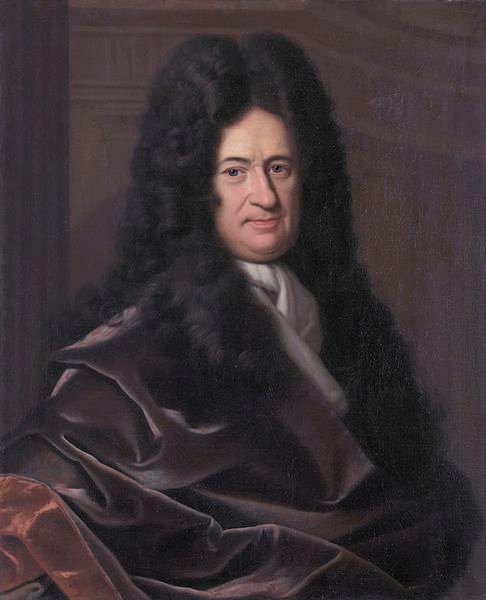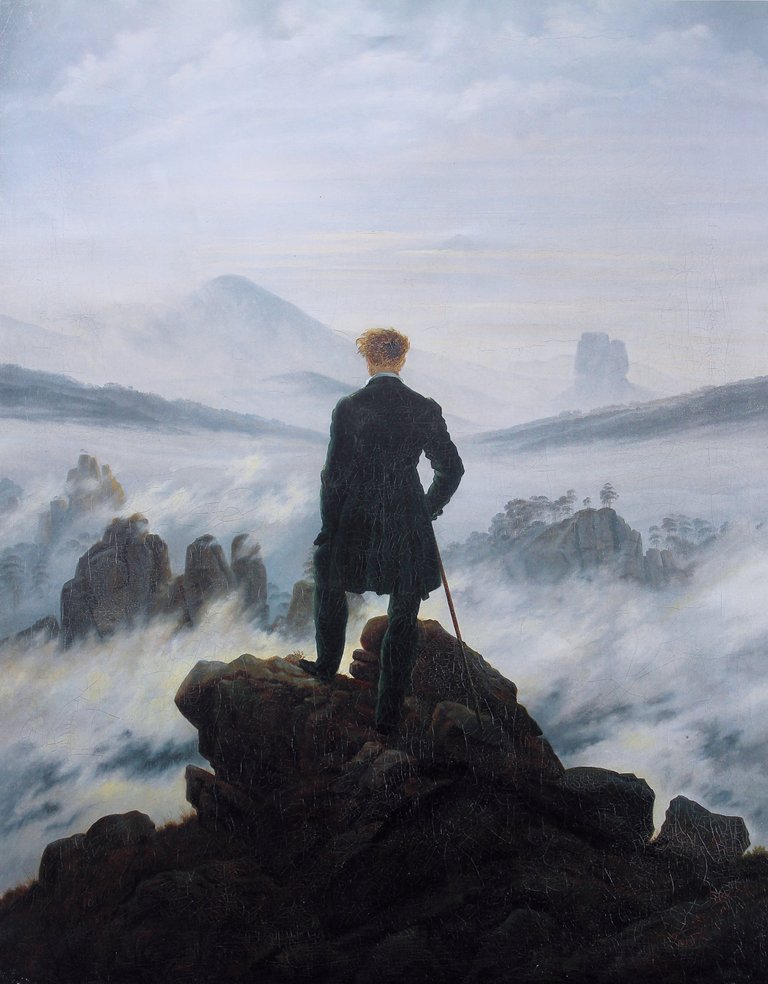
Hola Hivers! Hoy dejo de un lado los relatos para dedicarme a escribir y rendirle homenaje a quien considero una de las mentes más prodigiosas de la historia: Gottfried Wilhelm Leibniz (Leipzig, 1646-Hannover, 1716). Asimismo, haré algunos comentarios personales relacionados con el pensamiento filosófico de este ilustre alemán, el cual fue controversial entre la comunidad intelectual de la época. Este genio hizo estudios en diversas ramas del conocimiento. Su principal aporte, para muchos, correspondió al cálculo diferencial e integral, fundamental para el desarrollo de la ingeniería y el avance tecnológico. Gran visionario, Incursionó en muchas áreas del saber, tales como filosofía, lógica, teología, física, religión, política, derecho, paleontología y hasta poesía. Inventó un aparato llamado el “banco de cálculo” que realizaba cómputos con un sistema de numeración binaria (0 y 1), base fundamental de las computadoras modernas. Se dice que su biblioteca tuvo más de 115.000 tratados sobre diversas ramas del saber.
Fundador de la Academia Alemania de Ciencias en Berlín, fue un genio precoz, considerado en su época el “Hombre más grande de Alemania”. Un humanista a carta cabal según muchos. Hoy en día apenas se está conociendo y reinterpretando la metodología formulada llamada Ars Inveniendi, es decir reglas para favorecer la invención y la creación. Sus ideas fueron tan adelantadas que fueron objeto de ataques. Son famosas las críticas del pragmático Voltaire contra el pensamiento barroco de Leibniz, quien finalizó su vida humillado por los mismos que lo encumbraron y protegieron. Recién es que se está volviendo a investigar los aportes de Leibniz, pues sus propuestas tienen plena vigencia y son fuente de de ideas innovadoras.
Existen dos aspectos en el pensamiento filosófico de Leibniz que pondrían de cabeza a muchas personas hoy en día: la famosa frase “éste es el mejor de los mundos posibles”, blanco de mucha polémica y la perspectiva más desconcertante aún, que lleva a considerar la posibilidad de que la vida sólo sea un largo y confuso sueño. Al respecto Leibniz vaciló: "Si todo no es más que un sueño, los razonamientos son inútiles, no siendo nada absolutamente la verdad y el conocimiento". Visto desde este punto de vista, quiere decir que todo el cúmulo de conocimientos que usted y yo hemos podido obtener, ya bien sea propios de la experiencia directa con lo que llamamos mundo, o por medio del aprendizaje formal en la escuela o lectura es irrelevante, pues al fin y al cabo es imposible comprobar que la vida no sea un sueño, sin ningún tipo de repercusión con la excepción del bien o mal por el que debemos responder.

Hay que recordar que durante el siglo XVII se indagaba profundamente en las implicaciones existenciales y morales de la vida. El libre albedrio, la predestinación eran argumentos filosóficos comúnmente tratados tanto por Leibniz, como Descartes, Shakespeare Quevedo y otros pensadores; temas íntimamente relacionados con Dios y el problema moral. Debo señalar que la filosofía de Leibniz me recordó algunas reflexiones del desdichado Segismundo, personaje de la obra La Vida es Sueño, del dramaturgo español Pedro Calderón de la Barca:
¡Ay mísero de mi!¡Y ay infelice!
Apurar, cielos, pretendo
ya que tratáis así,
qué delito cometí
contra vosotros naciendo;
aunque si nací, ya entiendo
qué delito he cometido
Bastante causa ha tenido
vuestra justicia y rigor;
pues el delito mayor
del hombre es haber nacido
Es verdad; pues reprimamos
esta fiera condición,
esta furia, esta ambición
por si alguna vez soñamos.
Y sí haremos, pues estamos
en mundo tan singular,
que el vivir sólo es soñar;
y la experiencia me enseña
que el hombre que vive sueña
lo que es hasta despertar.
¿Qué es la vida? Un frenesí.
¿Qué es la vida? Una ilusión,
una sombra, una ficción,
y el mayor bien es pequeño.
¡Que toda la vida es sueño,
y los sueños, sueños son!
Versos que me Atrevo a Plasmar:
(Confieso que no soy poeta)
Estimado Don Calderón
le puedo contar agravio
con ideas de gran sabio
que Teófilo(*) soñando
su vida fue batallando:
Entre ilustrados con rencor
un tal Voltaire fue mejor
Al problema existencial
innegable dilema vital
indagar bien y rotundo
cual Infeliz Seguismundo.
Sin duda ni vacilación,
cuestionable indecisión
o una mala estrella,
mejor obrar sin yerra
para no pagar comisión
(*) Leibniz se autonombró Teófilo que significa “El que ama a Dios”
FIN
Gracias por tu Lectura


Hello Hivers! Today I leave aside the stories to dedicate myself to write and pay tribute to whom I consider one of the most prodigious minds in history: Gottfried Wilhelm Leibniz (Leipzig, 1646-Hannover, 1716). I will also make some personal comments related to the philosophical thought of this illustrious German, which was controversial among the intellectual community of the time. This genius made studies in various branches of knowledge. His main contribution, for many, corresponded to differential and integral calculus, fundamental for the development of engineering and technological progress. A great visionary, he ventured into many areas of knowledge, such as philosophy, logic, theology, physics, religion, politics, law, paleontology and even poetry. He invented a device called the "calculating bank" that performed computations with a binary numbering system (0 and 1), the fundamental basis of modern computers. It is said that his library contained more than 115,000 treatises on various branches of knowledge.
Founder of the German Academy of Sciences in Berlin, he was a precocious genius, considered in his time the "Greatest Man in Germany". A full-fledged humanist according to many. Today, the formulated methodology called Ars Inveniendi, i.e. rules to encourage invention and creation, is just becoming known and reinterpreted. His ideas were so advanced that they came under attack. The pragmatist Voltaire famously criticized the baroque thinking of Leibniz, who ended his life humiliated by the very same people who had exalted and protected him. It is only recently that Leibniz's contributions are being re-investigated, since his proposals are still fully valid and are a source of innovative ideas.
There are two aspects of Leibniz's philosophical thought that would turn many people upside down today: the famous phrase "this is the best of all possible worlds", the target of much controversy, and the even more disconcerting perspective, which leads one to consider the possibility that life is only a long and confused dream. In this regard Leibniz hesitated: "If everything is nothing but a dream, reasoning is useless, truth and knowledge being absolutely nothing". Seen from this point of view, it means that all the accumulation of knowledge that you and I have been able to obtain, either from direct experience with what we call the world, or through formal learning in school or reading is irrelevant, for after all it is impossible to prove that life is not a dream, without any kind of repercussion except for the good or evil for which we must answer.

We must remember that during the seventeenth century the existential and moral implications of life were deeply explored. Free will, predestination were philosophical arguments commonly treated by Leibniz, Descartes, Shakespeare, Quevedo and other thinkers; subjects intimately related to God and the moral problem. I must point out that Leibniz's philosophy reminded me of some reflections of the wretched Segismundo, a character in the play La Vida es Sueño, by the Spanish playwright Pedro Calderón de la Barca:
Alas, wretched man that I am, and alas, unhappy man!
Hurry up, heavens, I intend
since you treat me like this,
what crime I committed
against you when I was born;
though if I was born, I already understand
what crime I have committed
Your justice and rigour
your justice and rigor;
for the greatest crime
of man is to have been born
It is true; so let us repress
this fierce condition,
this rage, this ambition
in case we ever dream.
And we will, for we are
in a world so singular
that to live is only to dream;
and experience teaches me
that the man who lives dreams
what he is until he wakes up.
What is life? A frenzy.
What is life? An illusion,
a shadow, a fiction,
and the greatest good is small.
That all life is a dream,
and dreams are dreams!
Verses that I dare to capture:
(I confess I am not a poet).
Dear Don Calderón
I can tell you grievance
with ideas of a great sage
that Theophilus(*) dreaming
his life was battling:
Among the enlightened with rancor
a certain Voltaire was better
To the existential problem
undeniable vital dilemma
to inquire well and resounding
as unhappy Seguismundo.
Without doubt or hesitation,
questionable indecision
or a bad star,
better to act without error
(*) Leibniz named himself Theophilus, which means "He who loves God".
End
Thank you for your Reading

@cuantacuento, me encantan este tipo de publicaciones. Gracias por compartirla. Excelente post!
Aprecio tu comentario nel.alex...gracias! Siempre quise escribir algo sobre "incomprendido" Leibniz.